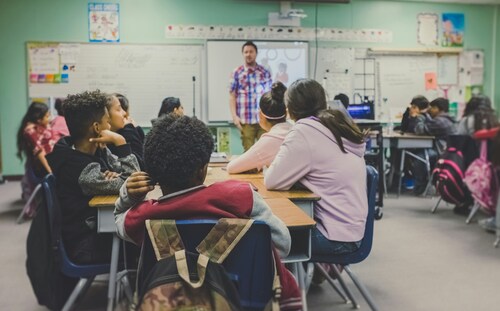Many boys face challenges that disrupt their education and social development. Behavioral issues, emotional struggles, and learning difficulties can hinder their progress in traditional settings. For these young individuals, a specialized approach may be necessary to provide the support they need to thrive.
A school for troubled boys offers a focused environment designed to address specific needs. Such institutions combine academic learning with therapeutic interventions tailored to help students manage their challenges. This article examines how these schools impact troubled boys, exploring their unique methods, benefits, and potential outcomes.
Tailored Academic Programs and Individual Attention
Traditional classrooms often struggle to meet the needs of boys dealing with emotional or behavioral difficulties. Specialized schools create smaller class sizes that enable personalized instruction. This attention allows teachers to adjust their methods based on each student’s strengths and weaknesses.
Customized learning plans are common in these settings. They accommodate different learning paces and styles, providing flexibility to ensure progress. Students receive direct feedback and support, which helps build confidence and encourages consistent improvement. The focused academic environment fosters engagement and reduces distractions that might arise in larger, conventional schools.
Therapeutic Support Integrated with Education
One of the defining features of a school for troubled boys is the integration of therapy within the daily routine. Professional counselors, psychologists, and social workers often collaborate with educators to create a cohesive support system. This approach addresses both academic and emotional needs simultaneously.
Therapeutic interventions may include individual counseling, group therapy, or family sessions. These services help students develop coping mechanisms, improve communication skills, and build emotional resilience. By embedding these resources in the educational setting, students experience a more holistic approach to their growth.
Building Positive Social Skills and Relationships
Many troubled boys struggle with social interactions, which can lead to isolation or conflict. Specialized schools emphasize social skill development through structured activities and guided interactions. Peer relationships are fostered in a safe environment, promoting trust and cooperation.
The staff often model appropriate behavior and provide consistent boundaries. This structure helps students understand consequences and develop respect for others. Over time, these social lessons translate into improved relationships both inside and outside of school.
Safe and Supportive Environment
Safety and stability are crucial for boys facing behavioral challenges. Schools designed for this population prioritize creating a secure atmosphere. Clear rules, consistent routines, and trained staff contribute to a predictable environment where students feel protected.
A supportive setting also encourages open communication and emotional expression. When boys feel heard and understood, they are more likely to engage positively with their education and peers. The presence of caring adults who respond calmly to crises helps reduce anxiety and promotes healing.
Key Benefits of Specialized Education
The advantages of a dedicated educational setting for troubled boys are significant. These schools offer a combination of academic rigor, therapeutic care, and social development that traditional schools may not provide. Some of the key benefits include:
- Personalized learning tailored to individual needs
- Integrated mental health support within the daily schedule
- Enhanced social skills through structured interactions
- A safe and consistent environment that fosters growth
- Increased motivation and self-esteem among students
These factors contribute to better educational outcomes and improved life skills, helping students prepare for adulthood more successfully.
A school for troubled boys can provide a transformative experience for young males facing difficulties. By combining tailored education with emotional and social support, these schools address the whole person rather than just academic performance. Such focused environments create opportunities for growth, healing, and achievement that might not be possible elsewhere. The lasting impact often extends beyond school years, influencing future success and well-being.
